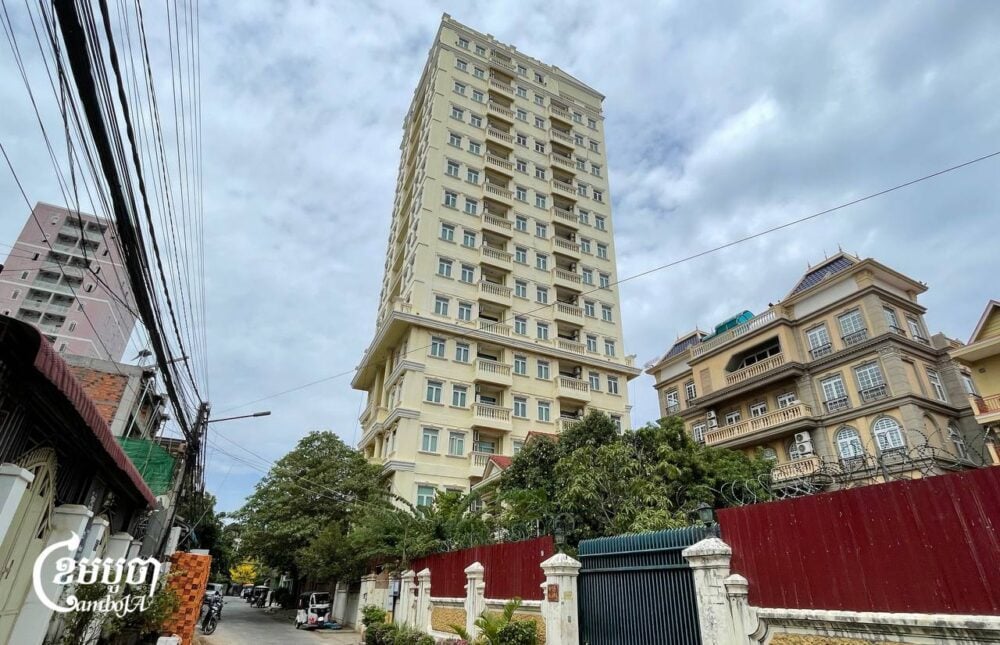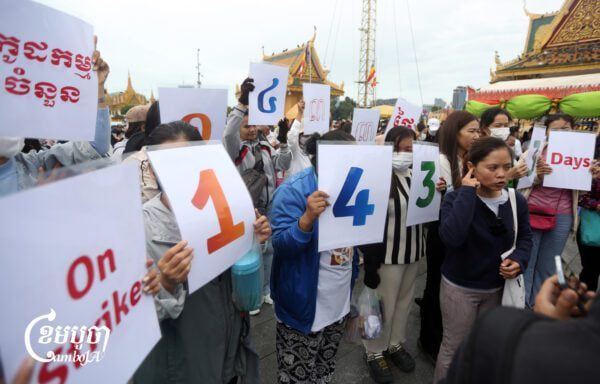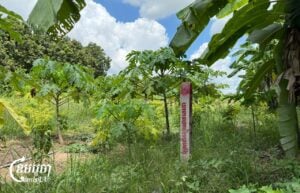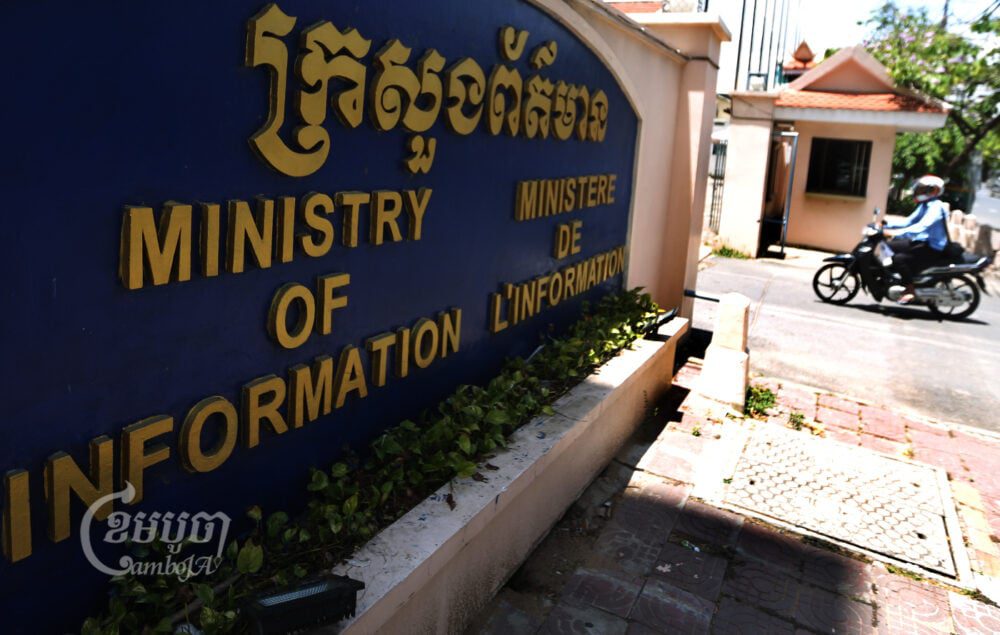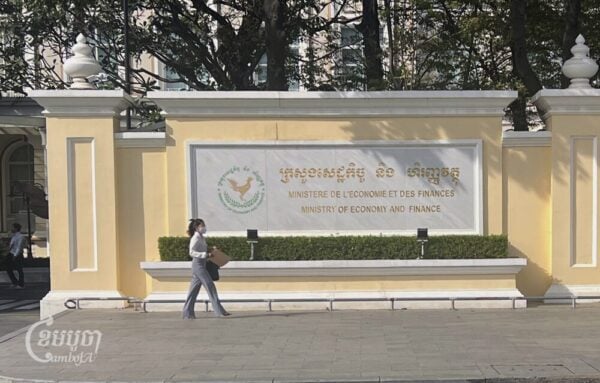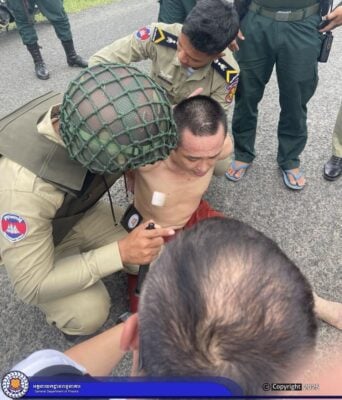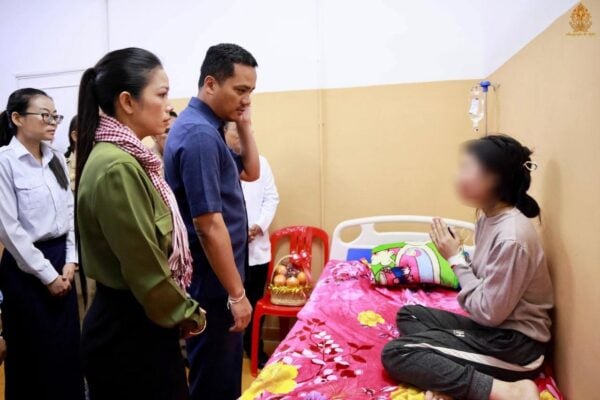Phnom Penh has established a special committee to crack down on online scams, following an order from Prime Minister Hun Manet.
On July 2, 2025, the Phnom Penh Administration issued a decree to establish a committee to combat online scams, with Phnom Penh governor Khuong Sreng as chairman. The committee will be composed of one permanent deputy chairman, and several deputy chairmen and members.
In April, Hun Manet instructed law enforcement agencies to strengthen efforts against online scams, stressing that the new Commission for Combating Online Scams is meant to complement—not replace—existing mechanisms, through coordinated action across relevant authorities.
The implementation of the anti-online scam measures will only be within the jurisdiction of Phnom Penh. The Technology Fraud Suppression Task Force is tasked with deploying the total force of the district administration unified command to implement technology fraud suppression from its base.
Phnom Penh City Hall spokesperson Dor Samphors told CamboJA News that the committee to combat cybercrime will cover the Phnom Penh metropolitan area. She did not state further when the committee will start operating or how it would combat scams, citing her busy schedule in Vietnam.
Phnom Penh Governor Khuong Sreng declined to comment, saying he was busy with a meeting.
Touch Sokhak, spokesperson of the Ministry of Interior, told CamboJA News that the committee is tasked to clean up online scams, noting that “many cases have been suppressed”. However, to increase suppression, areas where there may be a concentration of such crimes should establish a committee to continue controlling and preventing the crime.
Sokhak said the ministry also encouraged provinces where the authorities have cracked down on the crime, expelled those involved and filed cases in court to establish a committee, like the one in Phnom Penh.
“Phnom Penh will start first, and the provinces will continue with this work without retreating. And even if there are no committees for this task, each provincial governor and provincial commissioner will continue to prevent and stop this crime,” Sokhak said.
In the meantime, the government welcomes cooperation from other countries to combat the crime, as it is a “common problem” in the region. He cited the help offered by the U.S. to provide training in combating human trafficking, given the complex online issue. In addition, Cambodia is cooperating with other countries to share information, especially China.
The number of people involved in cybercrime from former premier Hun Sen’s tenure is approximately 20,000, with around 200 people, representing approximately 11 nationalities, sent to court, Sokhak said.
Recall that authorities raided an online scam center in Phnom Penh on March 31, detaining 186 foreigners accused of running internet fraud schemes.
On June 30, a delegation from the U.S. Embassy in Cambodia met Chou Bun Eng, Permanent Vice Chair of the National Committee to Counter Trafficking, and senior law enforcement officials to discuss ongoing cooperation and the sharing of information to tackle the rise of online scams and human trafficking.
“We are committed to protecting Americans by holding the perpetrators of scam compound crimes accountable in cooperation with Cambodian law enforcement partners,” said Andrew Leyva, the embassy’s political and economic section chief.
Bun Eng could not be reached for comment.
On July 3, she had a meeting with the ambassadors of Australia and Indonesia, who are co-chairs of the Bali Process, as well as ambassadors from Laos, Myanmar, Philippines, and Malaysia, to prepare for a regional multilateral dialogue in response to transnational human trafficking and related online fraud.
A report by Amnesty identified 53 scamming compounds in 13 different areas – mostly borderlands and coasts – as well as 45 “suspicious locations” hosting such activities in Cambodia. The Cambodia Counter Trafficking in Persons Project estimated at least 350 scam compounds operating nationwide as of October 2024, exploiting an estimated 150,000 foreign workers.
According to a previous report by a UN expert, the scams are highly mobile and widespread, with centers in “Sihanoukville, Phnom Penh, Pailin, Anlong Veng, O’Smach, Kandal, Pursat, Koh Kong, Bavet, Chrey Thom, Kampot, Oddar Meanchey, Poipet, Banteay Meanchey, Svay Rieng, and within the Dara Sakor and Henge Thmorda Special Economic Zones”.
Am Sam Ath, operations director of Licadho, said the committee’s establishment in the Phnom Penh area is a “good thing” as it can ensure transparency and strengthen enforcement. However, he hopes that similar committees are set up in other provinces to prevent and suppress crimes in those areas.
“The problem of online scams is affecting Cambodia’s reputation because in the past, international reports highlighted fraudulent acts here. Therefore, establishing a committee is a good thing, but it must suppress [the crime] effectively by [stopping] corruption, and strictly enforcing the law and cooperating with partner countries,” Sam Ath said.


